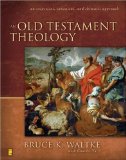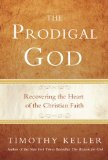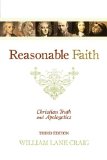Coming off the reposting of my review of Thomas Oden’s book, How Africa Shaped the Christian Mind, I was thinking about some of the implications studying early African Christianity would have for modern missions. As one who works for a missions organization and helps train future missionaries, I’m constantly looking to draw out practical application from studying the Bible, theology, church history, etc.
In my review of the book, I note that Oden points out how studying the early African church can benefit the modern, growing African church. African church leaders can learn from how their ancestors handled church disputes, draw encouragement from the example of African martyrs, and so on. Keeping in mind that most of the world places high priority on (1) their ancestors and (2) ancient wisdom (unlike many of us, who think newer is better), this is an important point that we can help pass along as the African church grows.
There’s another area where we can apply this insights to missions. I’m reminded of a story that the late J Christy Wilson told about sharing the gospel with a Turkish med student who was in the hospital. Wilson, who was a missionary to Muslims in Iran and Afghanistan before he went on to Gordon-Conwell to teach missions, was able to bridge the cultural gap with this Turkish man by pointing out the important role Turkey had in the early church. Paul was born in Turkey. The Apostle John lived in Ephesus, which is in modern day Turkey. Many of the important churches, including the 7 churches of Revelation, were in Turkey. What this did was enable this man to see that Christianity is not a white man’s religion or an import from the West. It’s roots, it’s foundation, are non-Western.
Applying this same idea to African Christianity is actually quite easy. Some of the greatest church fathers and theologians were Africans. Augustine was a Berber born in present day Algeria. Whether you always agree with him or not, Augustine is the most influential extra-biblical theologian in church history. He was African. Now, some may point out that he wrote in Latin and think this is an argument against what I’m presenting, as if writing in Latin somehow made him less of a Berber. I’d simply point out that if Augustine wanted to write for a wide audience, he had no choice but to write in Latin (or Greek, I suppose). He could have written in his native Berber tongue, but then his writings wouldn’t have travelled very far.
Let’s think about the Trinity for a second. I’ve had Christians tell me that this is a Western academic construction, one that we need not import onto people from other cultures who may be turned off but such theology (or think of it as Tritheism). I find it interesting that the man who coined the term “Trinity” was Tertullian, who was from Carthage (in modern day Tunisia). The greatest early church defender of orthodox trinitarian theology was Athanasius, who was from Egypt (and referred to by his opponents as “The Little Black Dwarf”, for those who insist on Christianity being a white religion).
From a missiological point of view, any genuine connection you can make with a native culture is important. Showing a Berber how Christianity was built in part because of Berber Christians can help remove the foreigness of the religion and its colonial connections. It’s nice because you don’t have to contrive it, you’re simply pointing out historical fact. Remember: many of these cultures pride themselves in ancient customs and traditions passed along from their ancestors. Reminding them (or showing them for the first time) that many of their ancestors were passionate followers of Jesus Christ and helped build His church is part of them reclaiming their heritage in Christ.











